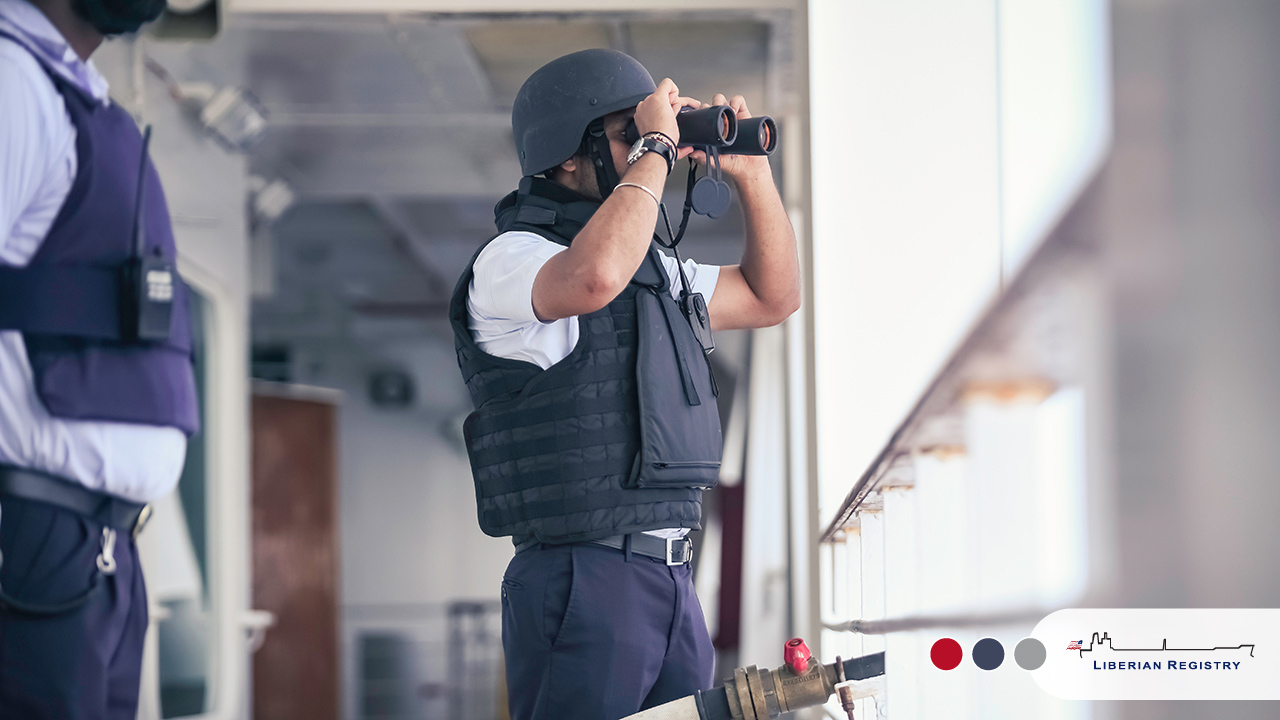STCW Ship Security Officer (SSO) online course aims to provide knowledge to those who may be designated to perform the duties and responsibilities of a Ship Security Officer (SSO), as defined in section A/2.1.6 (and section A/12) of the ISPS Code and in section A-VI/5 of the STCW Code, as amended.
The Ship Security Officer (SSO) online course covers the duties and responsibilities with respect to the security of a ship, for implementing and maintaining a Ship Security Plan and for liaising with the Company Security Officer (CSO) and with Port Facility Security Officers (PFSOs). With this course, specific training to address the problem of piracy and armed robbery against ships is emphasized. The framework for this is found in Section A-VI/5 of the 2010 amendments to the STCW Code.
At a glance:
Approval: Liberia, ΙΜΟ whitelist flag
Who is it for: Marine and Non-Marine roles including Officers and Ratings of merchant’s vessels, Cruise ships crews, Superyacht crews
Accepted by: All flags that accept IMO white list approved training including Malta and Panama. Also: Liberia, Azerbaijan, Bahamas, Cayman Islands, Cooks Island, Dominica, Egypt, Hong Kong/P.R.C, Indonesia, Kenya, Malaysia, Marshall Islands, Morocco, Oman, Palau, Tanzania, Taiwan.
STCW Compliance: Fully compliant with STCW Code as amended
Courses and Assessment: Online-only, available 24/7, both theoretical and practical parts
Duration: 16 h
Eligibility: Newcomers and Refresh training
Prerequisites: Passport
Certificate provided: Digital, PDF file (stamped hard copy available upon request)
Certificate Validity: For life – please note that some companies require refresh every five (5) years.
Competences:
1) Undertake regular security inspections of the ship to ensure that appropriate security measures are maintained
2) Maintain and supervise the implementation of the Ship Security Plan, including any amendments to the plan
3) Coordinate the security aspects of the handling of cargo and ship’s stores with other shipboard personnel and with the relevant Port Facility Security Officers
4) Propose modifications to the Ship Security Plan
5) Report to the Company Security Officer any deficiencies and non-conformities identified during internal audits, periodic reviews, security inspections and verifications of compliance and implementing any corrective action
6) Enhance security awareness and vigilance on board
7) Ensure that adequate training has been provided to shipboard personnel, as appropriate
8) Report all security incidents
9) Coordinate the implementation of the Ship Security Plan with the Company Security Officer and the relevant Port Facility Security Officer
10) Ensure that security equipment is properly operated, tested, calibrated and maintained, if any
Legislation & References:
IMO/ILO references:
International Maritime Organization. (2003). International Ship & Port Facility Security (ISPS) Code, 2003 and December 2002 Amendments to SOLAS. London: IMO. (IMO-I116E).
SOLAS Chapter XI-1
SOLAS Chapter XI-2
ISPS Code Part A
ISPS Code Part B
International Labour Organization. Seafarers’ Hours of Work and the Manning of Ships Convention, 1996. (No. 180).
International Labour Organization. Seafarers’ Identity Documents Convention (Revised), 2003. (No. 185).
International Maritime Organization. Seafarers’ Training, Certification, and Watchkeeping (STCW) Code, 2010.
STCW Code Section A-VI/6
STCW Code Table A-VI/6-1
International Maritime Organization. (2009). “Guidance to Shipowners and Ship Operators, Shipmasters and Crews on Preventing and Suppressing Acts of Piracy and Armed Robbery against Ships.” MSC.1/Circ.1334
Textbooks:
McNicholas, M. (2007). Maritime Security: An Introduction. Burlington: Butterworth- Heinemann.
Documents required to attend:
After purchasing the course you shall receive instructions in order to provide the following documentation:
Passport:
Documents should be received in PDF/PNG/JPG format. You can either scan or photograph them, please make sure that they are legible.
Kindly note that before you purchase any course it is your responsibility to check if it complies with the flag administration/approval body you require or you want to submit it to. Furthermore, you should check if the course is accepted by your employer as your employer may have specific requirements.






